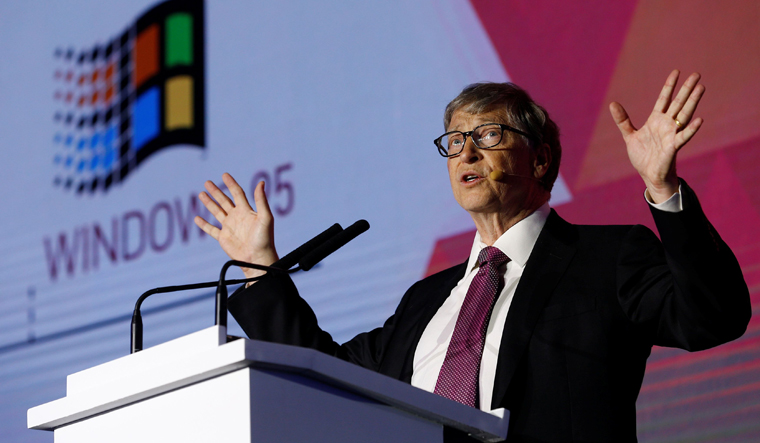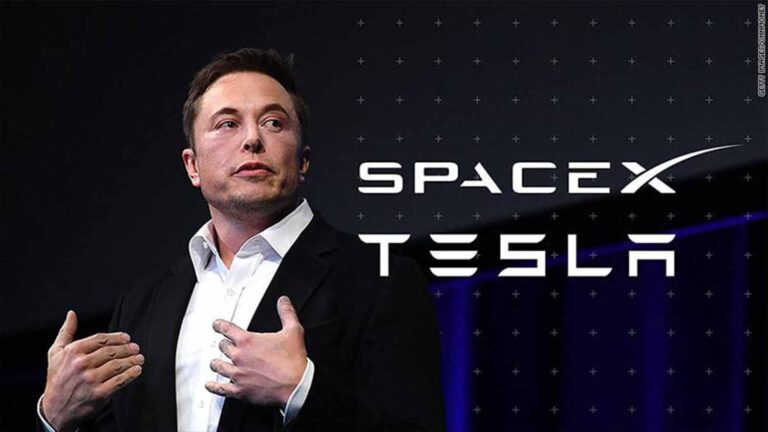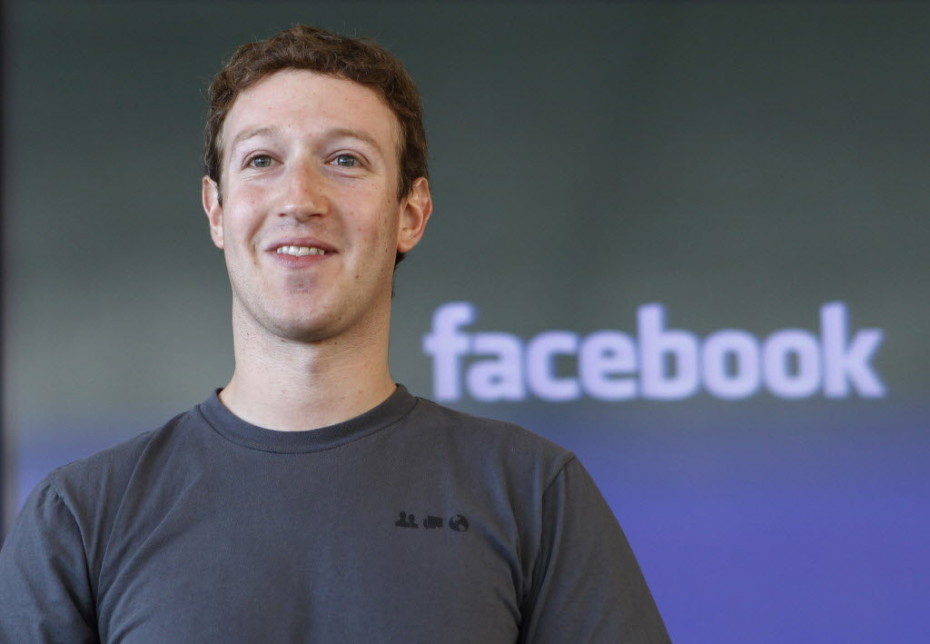Have you ever wondered what it takes to become one of the most successful individuals in the world? Look no further than Bill Gates, a name synonymous with innovation and wealth. As the co-founder of Microsoft and one of the richest people on the planet, Gates has left an indelible mark on both the technology industry and philanthropy. In this fascinating biography, we’ll delve into his early life, education, business ventures, personal achievements, and charitable endeavors that have shaped him into the icon he is today. Get ready to unravel the secrets behind Bill Gates’ phenomenal success!
| Full Name | William Henry Gates III |
| Date Of Birth | October 28, 1955 |
| Title | Bill Gate |
| Place Of Birth | Seattle, Washington |
| Occupation | Investor, CEO Microsoft |
| Parents | Bill Gate (Father) Mary M (Mother) |
| Number Of Children | 3 |
| Spouse | Melinda Gates |
| Relationship Status | Single |
| Investor, CEO of Microsoft | Check Websites Gate Notes |
Who Is Bill Gates?
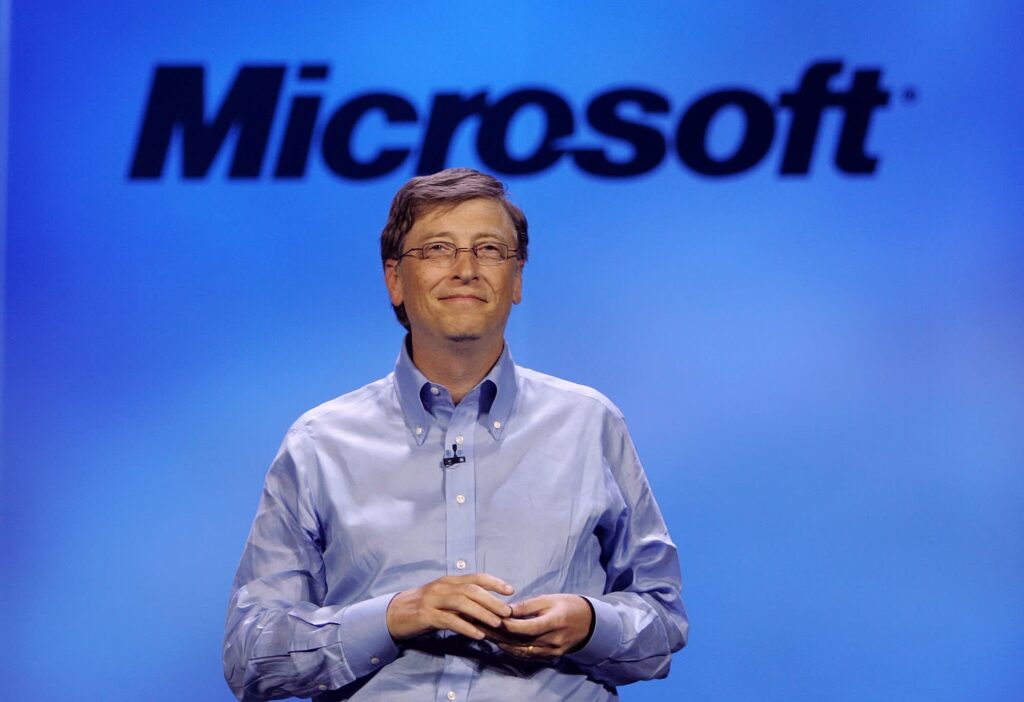
Bill Gates, born William Henry Gates III on October 28, 1955, in Seattle, Washington, is an American business magnate and philanthropist. He co-founded Microsoft Corporation alongside Paul Allen in 1975 and played a pivotal role in revolutionizing the computer industry. Known for his exceptional vision and relentless drive for success, Gates has become one of the most influential figures of our time.
From a young age, it was evident that Gates possessed a keen interest in technology. His parents recognized his potential and enrolled him in Lakeside School where he honed his programming skills on their Teletype Model 33 ASR terminal. Little did anyone know that this would be the first step toward changing the world as we know it.
Gates’ insatiable thirst for knowledge led him to attend Harvard University after high school. However, he dropped out during his sophomore year to pursue his entrepreneurial dreams with Allen. This bold decision proved to be instrumental in shaping both their destinies.
Together with Allen, Gates founded Microsoft Corporation with a mission to put “a computer on every desk and in every home.” Their breakthrough came when they developed MS-DOS (Microsoft Disk Operating System), which became the standard operating system for IBM PCs.
The rivalry between Bill Gates and Steve Jobs is legendary within the tech community. Both leading figures were responsible for revolutionizing personal computers but had vastly different approaches. While Jobs focused on creating elegant user interfaces at Apple Inc., Gates prioritized compatibility by making software that could run on any PC running Microsoft’s operating systems.
Despite facing numerous anti-competition lawsuits throughout its history due to its dominant market position, Microsoft continued to thrive under Gate’s leadership. The release of products like Windows OS and Office Suite solidified Microsoft’s place as an industry giant.
In recent years, Bill Gates has shifted much of his focus toward philanthropy through the Bill & Melinda Gates Foundation – one of the largest charitable foundations globally. The foundation works tirelessly to combat poverty, disease, and inequality
Early Life
To understand the secrets behind Bill Gates’ success, it’s important to delve into his early life. William Henry Gates III, known as Bill Gates, was born on October 28, 1955, in Seattle, Washington. He grew up in a supportive and well-educated family. His father was an attorney and his mother served on numerous corporate boards.
From a young age, Gates showed great enthusiasm for technology. At just 13 years old, he developed an interest in computer programming when he attended Lakeside School. It was there that he had access to one of the first computers ever made – the ASR-33 Teletype terminal.
Gates quickly became engrossed with programming and spent countless hours honing his skills during late nights at Lakeside School. In fact, he even managed to code a tic-tac-toe game that allowed users to play against the computer!
Recognizing his passion and talent for coding, Gates’ parents enrolled him in private lessons with a computer science teacher named Paul Allen. This encounter would prove to be pivotal in shaping not only their lives but also the future of technology.
Stay tuned as we explore more about Bill Gates’ education journey and how meeting Paul Allen changed everything!
Education
Education plays a crucial role in shaping an individual’s future, and it was no different for Bill Gates. Born into an academically inclined family, his parents recognized the importance of education from an early age. Gates attended public schools where he displayed exceptional intelligence and curiosity.
In high school, he developed a passion for computer programming after being exposed to computers for the first time. Recognizing his potential, Gates’ parents encouraged him to pursue his interest by enrolling him in Lakeside School, one of the few schools at that time with a computer terminal.
At Lakeside School, Gates excelled in various subjects and became increasingly fascinated with technology. He spent countless hours honing his programming skills and exploring new possibilities within the digital realm.
Gates’ thirst for knowledge led him to enroll at Harvard University in 1973. Although he initially intended to study law like his father, fate had other plans. It was during his time at Harvard that he met Paul Allen – a key turning point that would change both their lives forever.
Together with Allen, Gates dropped out of college to found Microsoft and embark on their entrepreneurial journey. While some may view leaving Harvard as a risky move, it proved essential in allowing Gates to fully dedicate himself to building what would become one of the most influential companies in history.
In essence, education provided Bill Gates with a solid foundation upon which he built his empire. From elementary school through college years at Harvard University, each educational milestone contributed towards nurturing his intellectual prowess and laying the groundwork for success in technology entrepreneurship.
Meeting and Partnering With Paul Allen
Bill Gates’ journey to success took a significant turn when he met Paul Allen. The two childhood friends shared a passion for programming, which would ultimately lead them to form one of the most influential companies in the world.
Gates first crossed paths with Allen at Lakeside School in Seattle, where they bonded over their mutual love for computers. Together, they honed their skills and became proficient in coding during late-night sessions in Lakeside’s computer lab.
Their partnership truly solidified after Gates dropped out of Harvard University and convinced Allen to leave his job at Honeywell. They were determined to make their mark on the emerging technology industry.
In 1975, Gates and Allen founded Microsoft. Their vision was to bring personal computers into every home, an idea that seemed ambitious at the time but has since become a reality. With Gates as CEO and Allen as the company’s visionary thinker, Microsoft quickly grew from a tiny startup into a global powerhouse.
Allen played a crucial role in shaping Microsoft’s early success by developing software such as Altair BASIC – one of the first successful PC programming languages. His technical expertise complemented Gates’ business acumen perfectly, allowing them to build innovative products that revolutionized computing.
Despite facing numerous challenges along the way, including fierce competition from rival companies like Apple and IBM, Gates and Allen remained steadfast in their pursuit of excellence. Their collaboration laid the foundation for iconic products like MS-DOS (Microsoft Disk Operating System) and Windows – which have shaped how we interact with computers today.
Unfortunately, this fruitful partnership eventually came to an end due to differing visions for Microsoft’s future direction. However, both parties continued making significant contributions in their respective fields after parting ways.
The meeting between Bill Gates and Paul Allen marked not only the birth of Microsoft but also paved the way for countless technological advancements that have transformed our lives forever.
Founding Microsoft
In the mid-1970s, Bill Gates and Paul Allen started to envision a future where computers would be an integral part of everyday life. They both had a passion for programming and a vision for what technology could become. In 1975, Gates dropped out of Harvard University to fully focus on their new venture.
Together, they founded Microsoft in Albuquerque, New Mexico. Their goal was ambitious – to create software that would revolutionize the personal computer industry. The duo began by developing programming languages for microcomputers.
Their breakthrough came when IBM approached them in 1980 with a request for an operating system (OS) for their upcoming PC line. Gates seized this opportunity and purchased an OS called QDOS from another company, which later became MS-DOS (Microsoft Disk Operating System). This move marked the beginning of Microsoft’s dominance in the software market.
Throughout the years, Microsoft continued to innovate and release groundbreaking products like Windows, Word, Excel, PowerPoint, and Internet Explorer. These products played a crucial role in shaping how people interacted with computers.
Gates’ strategic business decisions propelled Microsoft’s growth even further. He focused on partnerships with hardware manufacturers to ensure widespread distribution of their software, solidifying Microsoft as an industry leader.
The founding of Microsoft not only transformed Bill Gates’ life but also paved the way for advancements in technology that have shaped our world today. It set the stage for his remarkable success story as one of history’s most influential entrepreneurs.
Microsoft’s Software for IBM PCs
In the early 1980s, Microsoft made a groundbreaking move by developing software for IBM personal computers (PCs). This partnership laid the foundation for Microsoft’s incredible success in the tech industry.
At that time, IBM was dominating the computer market with its hardware, but it lacked a reliable operating system. Enter Bill Gates and his team at Microsoft. They saw this as an opportunity to create MS-DOS (Microsoft Disk Operating System), which became the standard operating system for IBM PCs.
MS-DOS provided users with a user-friendly interface and allowed them to run various applications on their computers. It was revolutionary because it made computing more accessible to everyday people.
The success of MS-DOS led to further collaborations between Microsoft and other computer manufacturers, solidifying their dominance in the software market. As technology advanced, so did Microsoft’s offerings, leading to the development of Windows – an even more intuitive graphical user interface that revolutionized personal computing.
Today, Windows is still one of the most widely used operating systems worldwide. It has evolved over time with new versions and updates that continue to enhance user experience.
Microsoft’s software for IBM PCs not only played a crucial role in shaping modern computing but also propelled Bill Gates and his company into unprecedented success. Their ability to identify opportunities and deliver innovative solutions helped establish Microsoft as an industry powerhouse that continues to influence technology today
Rivalry With Steve Jobs
Bill Gates and Steve Jobs are two names that are synonymous with the tech industry. Their rivalry is legendary, as both men were at the forefront of innovation and revolutionized the world of personal computing.
In the early days, Gates and Jobs had a complicated relationship. They respected each other’s genius but also clashed over their differing visions for the future of technology. While Gates focused on software and creating a platform that could be used by multiple hardware manufacturers, Jobs believed in creating a closed ecosystem where Apple controlled both hardware and software.
Their rivalry only intensified when Microsoft entered the market with Windows, a graphical operating system similar to Apple’s Macintosh. This led to accusations of theft and patent infringement from both sides.
Despite their differences, Gates recognized Job’s brilliance and even invested $150 million in Apple when it was on the verge of bankruptcy in 1997. This move helped save Apple from collapse.
The rivalry between these two giants continued until Jobs’ untimely death in 2011. However, their impact on technology cannot be overstated. Both men pushed each other to innovate and create products that have shaped our modern world.
Even though they may not have always seen eye-to-eye, Bill Gates acknowledges Steve Jobs’ contribution to the industry, stating that “he brought his unique talents to Microsoft – he knew how to motivate people.” The competition between them ultimately led to groundbreaking advancements in technology for all of us to benefit from today.
A Competitive Reputation
Bill Gates is widely known for his competitive nature and relentless drive to succeed. Throughout his career, he has built a reputation as a fierce competitor who is always striving to stay one step ahead of the game.
From the early days of Microsoft, Gates was determined to dominate the computer industry. He understood that competition was inevitable, but he saw it as an opportunity rather than a threat. He believed that healthy competition pushed him and his team to continuously innovate and improve their products.
Gates’ competitive spirit was evident in his dealings with rivals such as Apple’s Steve Jobs. The rivalry between these two tech giants fueled innovation and led to groundbreaking advancements in personal computing.
One example of Gates’ competitiveness can be seen in Microsoft’s development of Internet Explorer during the browser wars with Netscape Navigator. Despite being late to the game, Microsoft eventually overtook Netscape by bundling Internet Explorer with Windows operating systems.
Another aspect of Gates’ competitive nature is his focus on hiring top talent. He recognized that having talented individuals on board would give Microsoft an edge over its competitors. This emphasis on recruiting skilled professionals has been instrumental in shaping the success of the company.
Gates’ commitment to excellence and determination to win has undoubtedly contributed significantly to both his personal success and that of Microsoft. His competitive reputation serves as a reminder that staying ahead requires constant effort, innovation, and strategic thinking.
Microsoft Office and Anti-Competition Lawsuits
Microsoft Office is one of the most widely used software suites in the world, consisting of applications like Word, Excel, and PowerPoint. It has become an essential tool for businesses and individuals alike. But behind its success lies a turbulent history of anti-competition lawsuits.
In the late 1990s, Microsoft faced legal battles over allegations that it was engaging in anti-competitive practices to maintain its dominance in the software market. The U.S. Department of Justice filed a lawsuit against Microsoft, claiming that it had illegally bundled its Internet Explorer web browser with Windows to stifle competition from Netscape Navigator.
The lawsuit resulted in a landmark ruling that declared Microsoft a monopoly and ordered it to be split into two separate entities: one focused on operating systems and another on applications. However, this decision was overturned on appeal, and instead, Microsoft agreed to certain restrictions on its business practices.
Despite these setbacks, Microsoft continued to face scrutiny over its handling of competition. In 2007, the European Commission fined the company €497 million ($794 million) for failing to comply with antitrust regulations by not providing adequate information about interoperability with other software products.
These lawsuits highlighted the challenges that come with being at the top of your game in any industry. They also demonstrated how even giants like Microsoft are not immune to legal battles when it comes to maintaining their position in competitive markets.
Throughout these trials and tribulations, Bill Gates remained resilient as he steered his company through rough waters while striving for innovation and growth. His ability to navigate difficult situations ultimately contributed to his ongoing success as an entrepreneur and visionary leader.
Leaving Microsoft
Leaving Microsoft was a significant turning point in Bill Gates’ life and career. After years of leading the technology giant to unparalleled success, he decided it was time to step down from his position as CEO in 2000. This decision came as a surprise to many, but Gates had other ambitions and passions that he wanted to pursue.
During his tenure at Microsoft, Gates built an empire that revolutionized the computer industry. However, he felt a growing desire to shift his focus toward philanthropy and making a positive impact on the world. He believed that through his wealth and influence, he could tackle some of the world’s most pressing issues.
In 2008, Gates officially left his day-to-day responsibilities at Microsoft to dedicate more time to the Bill and Melinda Gates Foundation. This foundation focuses on improving global health conditions, reducing poverty levels, and enhancing educational opportunities for all individuals.
Although leaving Microsoft marked an end of an era for Gates, it also allowed him to embark on new endeavors that aligned with his passion for making a difference. His departure from Microsoft demonstrated not only commitment but also courage—stepping away from immense success in order to pursue something greater than personal gain.
Gates’ decision has proven fruitful over the years as the Bill and Melinda Gates Foundation continues its impactful work around the globe. Through strategic investments in healthcare research, education initiatives, and innovative solutions for poverty alleviation, they have succeeded in transforming countless lives.
Leaving Microsoft may have been a surprising move for many observers back then; however, it ultimately set in motion one of the most influential chapters of Bill Gates’s life—one dedicated entirely to giving back and creating lasting change on a global scale.
Personal Life
Bill Gates, despite his immense success and wealth, has maintained a relatively private personal life. He is married to Melinda French Gates, whom he met in the late 1980s while she was working at Microsoft. The couple got married in 1994 and have three children together.
Known for his intense work ethic, Bill Gates is also an avid reader and enjoys spending time with his family. He has mentioned in interviews that he tries to carve out quality time for his kids amidst his busy schedule.
In recent years, the Gates’ marriage has been under scrutiny due to their impending divorce announcement in May 2021. However, they have stated that they will continue working together on their philanthropic efforts through the Bill and Melinda Gates Foundation.
Outside of work and family, Bill Gates is known for being a voracious learner and thinker. He often takes annual reading retreats where he immerses himself in books on various subjects ranging from science to history.
While Bill Gates may be regarded as one of the most influential figures in technology, he still values privacy and cherishes moments with loved ones outside of the spotlight
Personal Wealth
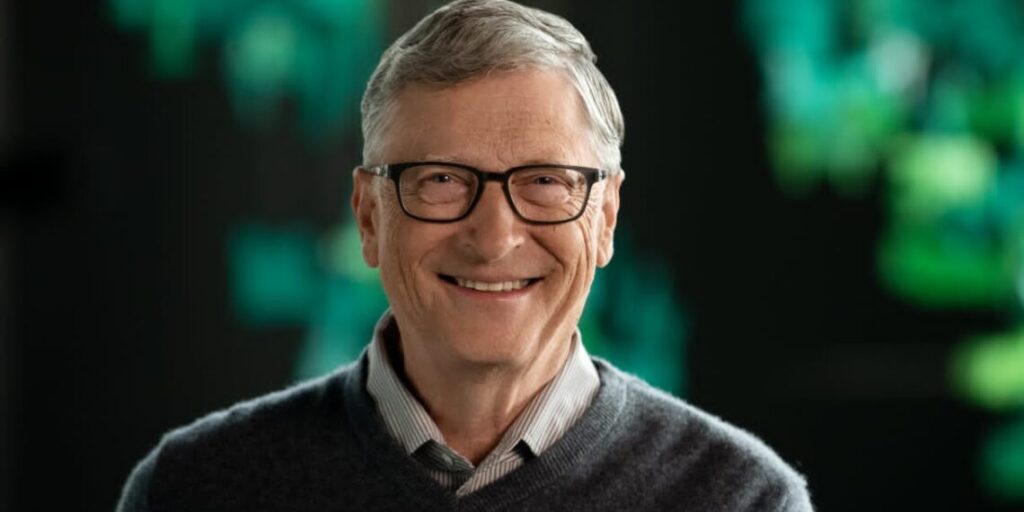
Bill Gates is not only known for his groundbreaking work in the technology industry but also for his immense personal wealth. As of 2021, he is consistently ranked among the richest individuals in the world. The source of Gates’ wealth primarily stems from his position as co-founder and former CEO of Microsoft.
When Microsoft went public in 1986, Gates became an instant billionaire at the age of 31. His ownership stake in the company continued to grow over time, contributing significantly to his personal fortune. In addition to this, Gates has made shrewd investments outside of Microsoft, diversifying his portfolio and further increasing his wealth.
Gates’s net worth is estimated to be around $117.2 billion (as of August 2023), making him one of the wealthiest people on the planet. Despite this vast accumulation of wealth, Gates has been actively involved in philanthropy through The Bill and Melinda Gates Foundation.
Through their foundation, Bill and Melinda have pledged a significant portion of their wealth towards initiatives such as global health improvement programs, education reform efforts, and poverty alleviation projects worldwide.
It’s important to note that while Gates has amassed incredible financial success throughout his career, it’s equally notable how he chooses to use that wealth for charitable purposes. This aspect sets him apart from many other high-net-worth individuals who may focus solely on accumulating more riches without considering the broader social impact.
Bill Gates’ personal wealth is a result not only of his astute business acumen but also because he recognizes the importance and responsibility associated with sharing that abundance with those less fortunate.
The Bill and Melinda Gates Foundation
The Bill and Melinda Gates Foundation is a philanthropic organization that was founded by Bill and Melinda Gates in 2000. It is one of the largest charitable foundations in the world, with an endowment of over $40 billion. The foundation’s primary goal is to improve global health and reduce poverty.
One of the key areas of focus for the foundation is global health. They work to combat diseases such as malaria, HIV/AIDS, and tuberculosis through research, vaccinations, and treatment programs. They also support initiatives to strengthen healthcare systems in developing countries.
In addition to their work in global health, the foundation also addresses other pressing issues such as education and climate change. They believe that access to quality education is essential for individuals to reach their full potential, so they invest in efforts to improve educational opportunities worldwide.
The foundation has also made significant contributions toward addressing climate change. They fund projects aimed at developing clean energy technologies and promoting sustainable agriculture practices.
The Bill and Melinda Gates Foundation plays a crucial role in driving positive change around the world. Through their innovative approaches and substantial financial resources, they are making a lasting impact on society’s most pressing challenges.
Alzheimer’s Research
Alzheimer’s Research has been a significant focus for Bill Gates in recent years. The disease, which affects millions of people worldwide, is characterized by memory loss and cognitive decline. Understanding the causes and finding potential treatments for Alzheimer’s has become a personal mission for Gates.
To tackle this complex issue, Gates has invested heavily in research initiatives. He believes that with innovative approaches and advancements in technology, there is hope for breakthroughs in understanding the disease better and developing effective treatment strategies.
One of the areas where Gates has made substantial investments is biomarker research. By studying biological indicators or markers associated with Alzheimer’s, scientists can gain insights into its progression and potentially identify early warning signs. This research could lead to earlier detection and intervention, significantly improving patient outcomes.
Gates also recognizes the importance of collaborations between researchers from various disciplines. His efforts have brought together experts from diverse backgrounds to share knowledge, exchange ideas, and foster interdisciplinary collaboration aimed at accelerating progress toward finding a cure.
In addition to funding research projects directly related to Alzheimer’s disease, Gates has also supported endeavors that aim to improve brain health overall. He understands that maintaining optimal brain function plays a vital role in preventing neurological disorders like Alzheimer’s.
Through his dedication to advancing Alzheimer’s research, Bill Gates hopes not only to find answers but also to inspire others to join the fight against this devastating condition. Together with leading scientists and organizations around the world, he continues to make strides toward unraveling the mysteries of Alzheimer’s disease.
Building a ‘Smart City’ in Arizona
In recent years, Bill Gates has turned his attention towards building a “smart city” in the state of Arizona. The idea behind this ambitious project is to create a sustainable and technologically advanced community that can serve as a model for future urban development.
The smart city, known as Belmont, will be located just outside of Phoenix and cover an area of nearly 25,000 acres. It is envisioned as a high-tech hub that integrates cutting-edge technology into every aspect of daily life. From self-driving cars and renewable energy sources to connected homes and advanced healthcare systems, Belmont aims to redefine what it means to live in a modern city.
One of the key goals of the project is to address some of the most pressing challenges faced by cities today, such as traffic congestion, energy consumption, and environmental sustainability. By leveraging innovative solutions and data-driven approaches, Gates hopes to create a livable and efficient urban environment that improves residents’ quality of life.
Belmont’s development will also provide opportunities for economic growth and job creation. The smart city will attract businesses in various industries including technology, research, and manufacturing. This influx of investment can help stimulate the local economy while providing employment opportunities for residents.
While still in its early stages, Building Belmont demonstrates Bill Gates’ commitment to using his wealth and influence for positive change. By investing in projects like this smart city initiative in Arizona, Gates continues to push boundaries on what is possible when it comes to innovation and sustainable development.
As we look ahead into the future with anticipation about how this endeavor unfolds—what other groundbreaking ideas might emerge from Bill Gates’s brilliant mind? Only time will tell!
Coronavirus
Coronavirus has become a global crisis, affecting every aspect of our lives. First identified in Wuhan, China in late 2019, the virus quickly spread across borders and continents, leading to widespread panic and uncertainty. The World Health Organization declared it a pandemic in March 2020.
The impact of the coronavirus has been devastating. It has claimed countless lives and overwhelmed healthcare systems around the world. Governments have implemented strict measures such as lockdowns and travel restrictions to curb the spread of the virus.
The economic repercussions are also severe. Many businesses have shut down or faced significant losses due to reduced consumer demand and disrupted supply chains. Millions of people have lost their jobs or faced financial hardship as a result.
Amidst this crisis, individuals like Bill Gates have stepped up to make a difference. Gates has utilized his resources and influence to support research efforts for developing vaccines and treatments for COVID-19. Through his foundation, he has pledged substantial funding towards finding solutions to combat the virus.
While we continue to face challenges posed by this pandemic, it is inspiring to see individuals like Bill Gates working tirelessly toward alleviating its impact on society.
Awards
Awards have been a significant part of Bill Gates’ journey, recognizing his immense contributions and achievements. Throughout his career, he has received numerous accolades and honors from various prestigious organizations.
One of the most notable awards bestowed upon Gates is the Presidential Medal of Freedom, which he received in 2016. This esteemed award recognizes individuals who have made exceptional contributions to the security or national interests of the United States. It serves as a testament to Gates’ groundbreaking work in technology and philanthropy.
Gates has also been honored with several honorary degrees from renowned universities such as Harvard University, Cambridge University, and Tsinghua University. These degrees acknowledge his profound impact on society through innovation and philanthropy.
In addition to these accolades, Gates has been recognized by TIME magazine multiple times. He was named one of the “100 Most Influential People” in both 2004 and 2005. Furthermore, he was included in Forbes’ list of “The World’s Most Powerful People” several times.
These awards not only highlight Gates’ remarkable success but also serve as an inspiration for aspiring entrepreneurs around the world. His dedication to making a positive difference in society continues to be recognized globally, solidifying his legacy as one of history’s greatest innovators and philanthropists.
Entrepreneurs
Bill Gates‘ success story serves as an inspiration to entrepreneurs around the world. His journey from a young computer enthusiast to becoming one of the wealthiest individuals on the planet is nothing short of extraordinary.
Throughout his career, Bill Gates demonstrated exceptional vision and determination. He had an innate ability to identify opportunities and turn them into successful ventures. From founding Microsoft and revolutionizing the software industry to his philanthropic efforts with the Bill and Melinda Gates Foundation, Gates has left an indelible mark on both technology and society.
Aspiring entrepreneurs can learn valuable lessons from studying Bill Gates’ life. His unwavering focus on innovation, dedication to continuous learning, and relentless pursuit of excellence are qualities that every entrepreneur should strive for.
Furthermore, Gates’ willingness to take calculated risks and embrace failure as a stepping stone toward success highlights the importance of resilience in entrepreneurship. His drive for creating meaningful change has not only transformed industries but also improved countless lives through initiatives such as combating global health issues like malaria or polio eradication.
Bill Gates’ biography teaches us that true success lies not only in individual achievements but also in giving back to society. The establishment of the Bill and Melinda Gates Foundation exemplifies this philosophy, as it focuses on addressing some of humanity’s most pressing challenges through innovative solutions.
In conclusion (without explicitly stating it), by unraveling the secrets behind Bill Gates’s success through this fascinating biography, we gain insights into what it takes to become a successful entrepreneur: passion, persistence, vision, adaptability, and risk-taking ability.
